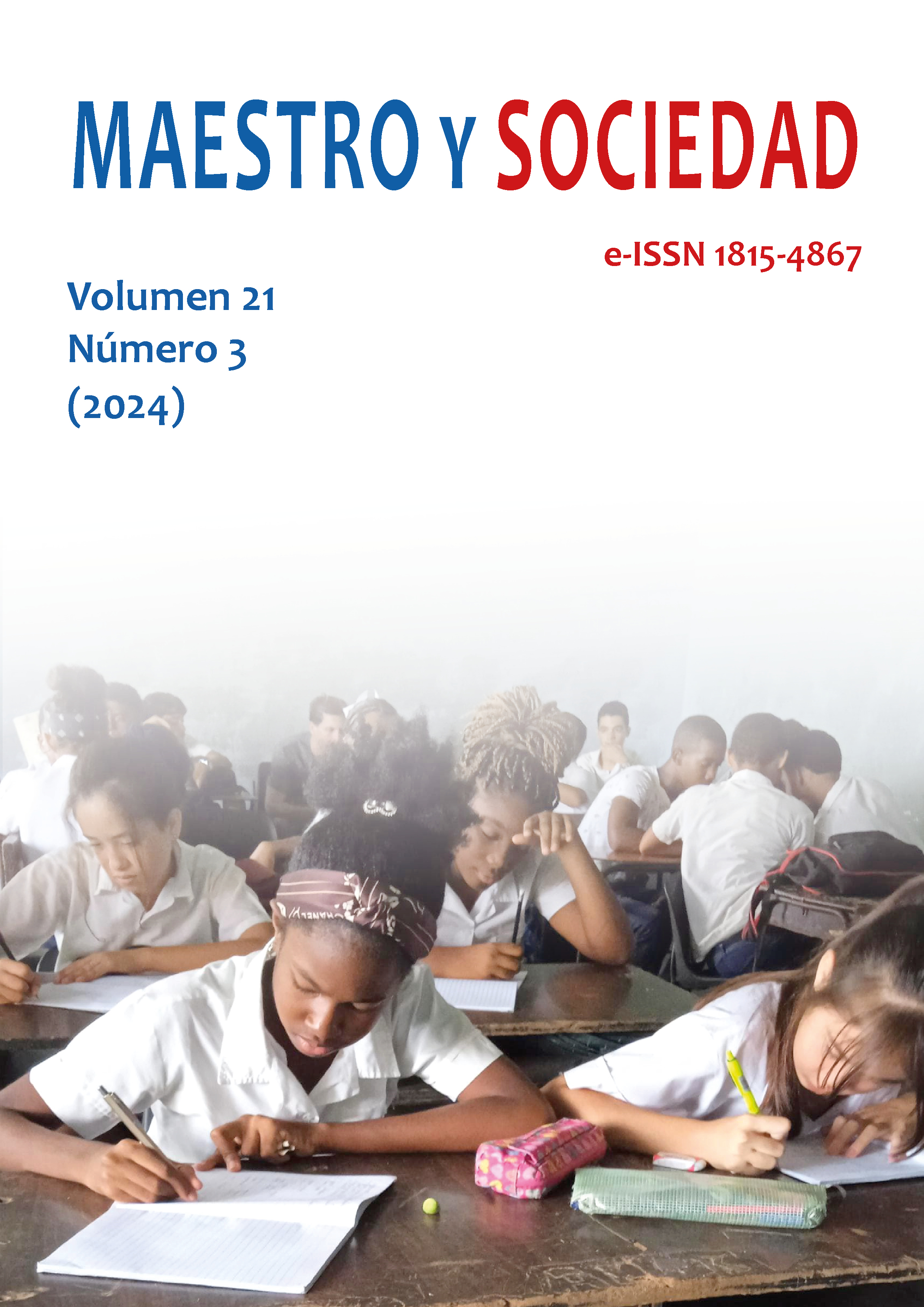Model of the conflictual contextualizing dynamics of postgraduate training in international arbitration for legal advisors
Keywords:
International arbitration, conflictual contextualizing dynamics, postgraduate trainingAbstract
Introduction: This article presents the theoretical foundations of the model of the contextualizing conflict dynamics of postgraduate training in international arbitration for legal advisors from the perspective of the holistic-configurational approach, which is an expression of the essential relationships established between its configurations, from which the movements that give rise to new qualities for the transformation of the modeled object originate. The ability to recognize the principles and the applicable norm to the solution of conflicts before an international arbitration process in which a foreign element is present, in the legal relations of export and import make this symbiosis a legal practice in training for these operators of the Law, from the management of international arbitration. Materials and methods: For this research, various methods were used such as analysis and synthesis, hermeneutic-dialectical, historical-legal analysis, theoretical-legal analysis and exegetic-legal method. Results: It is necessary to start from the re-signification of the contextualizing conflictual dynamics of postgraduate training in international arbitration for legal advisors, which is interpreted as an integrated training process in private international law to recognize, identify and guide the effective legal practice when a litigation or arbitration process arises where a foreign element intervenes. Discussion: The modeling carried out conceives the contextualizing conflictual dynamics of postgraduate training in international arbitration for legal advisors, through the movements that are established in two fundamental dimensions: contextualizing dimension in international arbitration and conflictual dimension in international arbitration, which are an expression of the character of the appropriation of legal professionalization in international arbitration as a dynamic cell of the process, which mediates between the practice of professional improvement for international arbitration and the strengthening for the understanding of the conflict of law, as a logic of systematization. Conclusions: The essential relationships revealed in the integration of these movements guarantee a relevant dynamic, based on redefining the appropriation of legal professionalization in international arbitration for legal advisors as a systematization process that conditions a culture in international arbitration for the development of their professional performance.
References
Addine, F. (comp.) (2004). Didáctica: teoría y práctica. Pueblo y Educación.
Castro A., P., Chacón, A. y Mendoza, L. (2013). La escuela y la formación de valores. Enfoques y experiencias. [Cd-Room].
Dávalos, R. (2007). Derecho Internacional Privado, Parte General, 1ª edición. La Habana: Editorial Félix Varela.
Delgado, J. (2008). La formación en valores: una reconceptualización imprescindible en la educación de posgrado. Revista Iberoamericana de Educación, 42(5). Recuperado de http://www.rieoei.org/2377.htm.
Fuentes, H. (2009). Pedagogía y Didáctica de la Educación Superior. Santiago de Cuba: Universidad de Oriente.
Fuentes, H., Montoya, J. y Fuentes, L. (2011). La formación en la educación superior: desde lo holístico, complejo y dialectico de la construcción del conocimiento científico. Santiago de Cuba: Ediciones UO.
López, Z. (2014). La superación profesional en el contexto de la entidad laboral como componente indispensable de la formación permanente de los asesores de la ETP. Recuperado de: http://www.revista.orbitacientífica.rimed.cu/.
República de Cuba. (2014). Ley 118/2014 de 9 de abril de 2014, “Ley de Inversión Extranjera”. Gaceta Oficial Extraordinaria No. 20 de fecha 16 de abril de 2014. La Habana: Ministerio de Justicia.
República de Cuba (2018). Resolución No 8 “Reglas de Procedimiento de la Corte Cubana de Arbitraje Comercial Internacional”. Gaceta Oficial Extraordinaria No. 30 de de 25 de mayo de 2018.
República de Cuba. (2019). Constitución de la República. Gaceta Oficial Extraordinaria No. 5 de 1° de abril de 2019. La Habana: Ministerio de Justicia.
República de Cuba. (2021). Ley. No. 141 “Código de Procesos” de 28 de octubre de 2021. Gaceta Oficial Ordinaria No. 138 de 7 de diciembre de 2021. La Habana: Ministerio de Justicia.
República de Cuba. (2021). Decreto No. 46 de 2021. Gaceta Oficial Ordinaria No. 94 de fecha 19 de agosto de 2021. La Habana: Ministerio de Justicia.
Rodríguez Benot, A. et al (2016). Manual de Derecho Internacional Privado, 3ª edición. Madrid: Editorial Tecnos.
Tarragó A., R. M., Rodríguez S., M J., Montenegro M., E. I. y Asín C., M. (2019). Formación posgraduada de los asesores universitarios en propiedad intelectual, actualidad y transformación. Revista Maestro y Sociedad, 16(4), 744-752. Recuperado de http://maestroysociedad.uo.edu.cu.
Vigotsky, L. S. (1987). Historia del desarrollo de las funciones psíquicas superiores. Editorial Científico Técnica.
Published
How to Cite
Issue
Section
License
Copyright (c) 2024 Reynaldo Manuel Tarragó Ayra, Celia Araujo Quintero

This work is licensed under a Creative Commons Attribution-NonCommercial-NoDerivatives 4.0 International License.
This journal provides immediate open access to its content, based on the principle that offering the public free access to research helps a greater global exchange of knowledge. Each author is responsible for the content of each of their articles.



























 Universidad de Oriente
Universidad de Oriente 